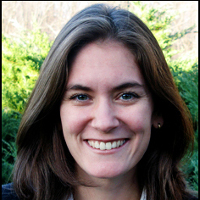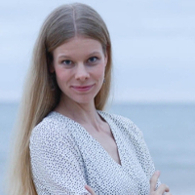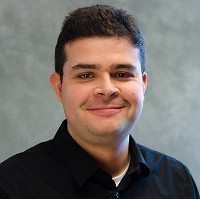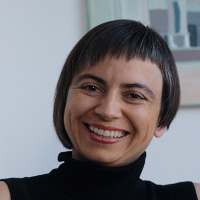
In network analysis, the centrality of nodes is quantified by structural indices. Many such indices have been proposed but in any specific situation, analysts face a difficult choice. By which criteria can one index be chosen over another? Is a known one suitable? Should it be modified? Or should a new one be devised? We evade these questions by arguing that they are overly ambitious, if not misleading. Instead of fixating on a specific index, we propose to start from the space of all rankings and to gradually zoom in on what might be a suitable centrality. As a byproduct, thousands of new centrality indices are obtained.
Ulrik Brandes is a professor for computer science at the University of Konstanz since 2003. He received a Diploma degree from RWTH Aachen in 1994 and a PhD from the University of Konstanz in 1999. After his habilitation in 2002 he became associate professor at the University of Passau in the same year. With a background in algorithmics, his main interests are in network analysis and visualization, with application to social networks in particular. He is a member of the board of directors of the International Network for Social Network Analysis (INSNA), associate editor of Social Networks, and area editor of Network Science. He was a member of the Graph Drawing Steering Committee from 2007 to 2014, and is on the editorial board of the Journal of Graph Algorithms and Applications. He is a co-author of the visone software for network analysis and the GraphML data format. In his Reinhart Koselleck-Project Social Network Algorithmics funded by Deutsche Forschungsgemeinschaft (DFG), he takes a shot at improving the methodological foundations of network science. As a principal investigator in the ERC Synergy Project NEXUS 1492 he is working on reconstructing archaeological networks from fragmented and heterogeneous observations

Social influence is the process by which one person's attitudes, opinions and beliefs are shaped by those with whom they interact. This can be a relatively slow process in which members of a group convince each other and the group as a whole forms a new consensus through a process where all actors influence each other. In social media, however, the process can be very quick, mutual reinforcement and reciprocated influence may not occur, and the attitudes, opinions and beliefs may not be grounded on reality. In this talk, the notions of super-spreaders, super-friends and echo-chambers are used to demonstrate how attitudes, opinions and beliefs are shaped in social media. A series of empirical studies are used to explain how actors can use technology to manipulate the social influence process. The roles of bots and the consequences for the spread of fake news are discussed.
Kathleen M. Carley is a Professor of Computation, Organizations and Society and the center director for Computational Analysis of Social and Organizational Systems CASOS in the Institute for Software Research, School of Computer Science, at Carnegie Mellon University. She received her PhD in Sociology from Harvard, and an SB in Economics and another in Political Science from Massachusetts Institute of Technology. Her research combines cognitive science, network science, agent-based modeling, social media analytics and language technology to address complex social and organizational problems. Specific research areas include dynamic network analysis, computational social and organization theory, adaptation and evolution, information diffusion and belief dispersion, health and medical informatics, counter-terrorism and disaster response. Her tool, ORA, is used throughout the world for analyzing and visualizing networks. She founded the journal Computational and Mathematical Organization Theory, co-edited several books and has over 300 publications in network science, social media, and computational social science areas. In 2001 she received a lifetime achievement award in sociology and computers, is the 2010 winner of the Social Network Simmel award, an IEEE Fellow, and winner of the 2014 Allen Newell Award for Research Excellence.

ISI Foundation
Scientific Director of the ISI Foundation
Director of the Data Science Laboratory
Title: High-resolution social networks from wearable sensors: Experiences and perspectives (presented by EPJ Data Science)
Digital technologies provide the opportunity to quantify specific human behaviors with unprecedented levels of detail and scale. Personal electronic devices and wearable sensors, in particular, can be used to map the network structure of human close-range interactions in a variety of settings relevant for research in computational social science, epidemiology and public health. This talk will review the experience of the SocioPatterns collaboration, an ongoing international effort aimed at measuring and studying high-resolution human social networks using wearable proximity sensors. We will discuss technology requirements and measurement experiences in diverse environments such as schools and hospitals, including recent work in low-resource rural settings in Africa. We will illustrate the network structures observed in empirical data, reflect on challenges such as generalization and data incompleteness, and review modeling approaches based on ideas from network science, epidemiology and computer science. We will close with an overview of future research directions and applications.
Dr. Ciro Cattuto is the Scientific Director of ISI Foundation (Torino, Italy and New York City, USA), a 30-year old non-profit research institution that tackles fundamental and applied challenges in Complex Systems Science, Data Science and Mathematical Modeling. He founded and directs the Data Science Laboratory of ISI Foundation, where his research focuses on measuring, understanding and forecasting complex phenomena in systems that entangle human behaviours and digital platforms. Dr. Cattuto is a founder and principal investigator of the SocioPatterns collaboration, an international effort on measuring and analyzing human and animal social networks with wearable sensors. Dr. Cattuto holds a PhD in Physics from the University of Perugia, Italy and has carried out interdisciplinary research at the University of Michigan in Ann Arbor, USA, at Sapienza University in Rome, and at the Frontier Research System of the RIKEN Institute in Japan. He is an adjunct professor at the University of Torino and at Sapienza University, an editorial board member of the EPJ Data Science and Nature Scientific Data journals, and has been an organizer, program chair and track chair of several leading conferences in Computer Science, Network Science, Complex Systems and Digital Epidemiology.

University of Pennsylvania
Associate Professor of Communication at the Annenberg School for Communication
Title: How Ideas Spread from Brain to Brain (presented by Microsoft)
What makes people receptive to new ideas and likely to share with others? The immense power of social influence is well documented and may be amplified by social media. Understanding the psychological mechanisms that lead to the effective spread of ideas is critical for many of society’s most pressing concerns. I will present a series of studies that address how and why ideas spread from person to person and through social networks. I will present a neurocognitive model of sharing, and empirical validation with large-scale sharing behavior in the population of New York Times readers. Finally I will offer a brief overview for a framework linking individual differences in brain activity to the shape of real-world social networks.
Emily Falk is an Associate Professor of Communication at the University of Pennsylvania’s Annenberg School for Communication. Prof. Falk employs a variety of methods drawn from communication science, neuroscience and psychology. Her work traverses levels of analysis from individual behavior, to diffusion in group and population level media effects. In particular, Prof. Falk is interested in predicting behavior change following exposure to persuasive messages and in understanding what makes successful ideas spread (e.g. through social networks, through cultures). Prof. Falk is also interested in developing methods to predict the efficacy of persuasive communication at the population level. At present, much of her research focuses on health communication, including recent work exploring neural predictors of increased sunscreen use, neural predictors of smoking reduction, and linking neural responses to health messages to population level behavioral outcomes; other areas of interest include political communication, cross-cultural communication, and the spread of culture, social norms and sticky ideas. Prof. Falk's work has been funded by NCI, NICHD, NIDA/the NIH Director's New Innovator Award, ARL, DARPA and ONR. Prior to her doctoral work, Prof. Falk was a Fulbright Fellow in health policy, studying health communication in Canada. She received her bachelor’s degree in Neuroscience from Brown University, and her Ph.D. in Psychology from the University of California, Los Angeles (UCLA).

Stanford University
Associate Professor in the Department of Political Science
Associate Professor in the Department of Computer Science (by courtesy)
Title: Exploratory and Confirmatory Causal Inference for High Dimensional Interventions (presented by SAGE Publishing)
Social scientists want to discover how the features of high dimensional interventions - such as messages, images, and videos---influence outcomes. We introduce a new experimental design and statistical method that demonstrates how machine learning methods can be unified with causal inference techniques to both discover interventions of interest and credibly estimate their effect. We first prove that existing techniques are ill-equipped for discovering and credibly estimating causal effects. We then prove conditions that identify the effects of high dimensional interventions and introduce new machine learning models to uncover their effect. We apply our procedure to several settings, ranging from the effects of Chinese propaganda to the determinants of bureaucratic decisions.
Justin Grimmer is an Associate Professor of Political Science at Stanford University and, by courtesy, an Associate Professor of Computer Science. His research examines how representation occurs in American politics using new statistical methods. He is the author of two books, Representational Style in Congress: What Legislators Say and Why It Matters (Cambridge University Press, 2013) which was awarded the Richard J. Fenno Prize from the legislative studies section and The Impression of Influence: How Legislator Communication and Government Spending Cultivate a Personal Vote (Princeton University Press, with Sean J. Westwood and Solomon Messing). His work has appeared in the American Political Science Review, American Journal of Political Science, Journal of Politics, Political Analysis, Proceedings of the National Academy of Sciences, Regulation and Governance, Proceedings of the Association for Computational Linguistics, and other outlets.

Folk theories are people’s intuitive theories developed to explain the consequences of interacting with complex systems, from gravity to zippers. While psychologists have a good understanding of how folk theories operate for many kinds of complex systems, like mechanical devices or other people's minds, we have very little idea about how people think about complex cyber-social systems, like the Facebook Newsfeed. In this talk we'll discuss the importance of folk theories for a range of cyber-social systems and introduce the Discover-Identify-Specify (DIS) method for examining folk theories. I'll present data that compares folk theories across two social feeds, the Facebook News Feed and the Twitter Feed. The results reveal that there are four primary folk theories for the Facebook News Feed and Twitter Feed: the rational assistant, the unwanted observer, the transparent platform and the corporate black box. There are, however, important differences in the strengths in which the four folk theories are held between the two systems, and this has important implications for both the design of these systems but also for understanding social behavior at scale.
Jeff Hancock is a Professor in the Department of Communication at Stanford University and Director of the Stanford Center for Computational Social Science. Professor Hancock works on the psychology of social media by using computational linguistics and behavioral experiments to examine deception and trust, emotional dynamics, intimacy and relationships, folk theories and well-being.

Northwestern University
Assistant Professor in School of Communication
Assistant Professor in Kellogg School of Management (by courtesy)
Title: Hidden signals of collective intelligence in crowdfunding (presented by Kellogg School of Management at Northwestern University)
Crowds have been argued to possess transformative collective intelligence benefits that allow superior decision-making by untrained individuals working in low-information environments. Classic wisdom of crowds theories are based on the study of large groups of diverse and independent decision-makers. Yet, most human decisions are reached in arrangements that violate these criteria. This observation puts forth a key question: Are there new expressions of collective intelligence that enable better outcomes? In this talk, we explore whether crowds furnish collective intelligence benefits in crowdfunding systems. Crowdfunding has grown and diversified quickly over the past couple of years expanding from funding aspirant creative works and supplying pro-social donations to enabling large citizen-funded urban projects and providing commercial interest-based unsecured loans. In the latter setting we find evidence for collective intelligence signals in financing: Opinion diversity and information aggregation speed predict who gets funded and who repays even after accounting for traditional measures of creditworthiness. Most importantly, crowds work best in correctly assessing the outcome of high risk projects. Furthermore, diversity and speed serve as early warning signals when inferring fundraising based solely on the initial part of the campaign. These findings broaden on the one hand the field of crowd-aware system design and inform discussions about the augmentation of traditional financing systems with tech innovations. On the other hand, they contribute to the growing literature on the wisdom of crowds.
is an assistant professor at Northwestern University's School of Communication. Her current research spans the areas of collective intelligence, sharing economies, and the creative industries. Horvát’s work focuses on developing theory and methods for the study of complex networks at the intersection of computer science, physics, and social phenomena. Her interdisciplinary approach seeks to understand the behavior of connected crowds by building on techniques from network science, machine learning, statistics, and exploratory visualization. Before joining the School of Communication, she was a post-doctoral researcher at the Northwestern Institute on Complex Systems (NICO). She earned a Ph.D. in Interdisciplinary Physics from Heidelberg University, Germany in 2013 and also holds a B.Sc. in Physics and Computer Science from the Babeș-Bolyai University, Romania and a B.A. in Photography, Film, and Media from the Sapientia University, Romania.

The advent of powerful and inexpensive sensing technology has opened the door to studying human behaviour and activity at an unprecedented scale and granularity. In this talk Cecilia Mascolo will describe the challenges and opportunities of the gathering data through wearable devices and in devising models underpinned by complex network theory for the analysis of human behaviour data collected in such manner. The speaker will draw examples from domains ranging from office analytics, urban planning and mobile health applications. She will discuss also the implications of feeding information derived from these studies back into applications.
Cecilia Mascolo is Full Professor of Mobile Systems in the Computer Laboratory, University of Cambridge, UK. She is also a Fellow of Jesus College Cambridge and a Faculty Fellow at the Alan Turing Institute for Data Science in London. Prior joining Cambridge in 2008, she has been a faculty member in the Department of Computer Science at University College London. She holds a PhD from the University of Bologna. Her research interests are in human mobility modelling, mobile and sensor systems and spatio-temporal data analysis. She has published in a number of top tier conferences and journals in the area and her investigator experience spans projects funded by Research Councils and industry. She has received numerous best paper awards and in 2016 was listed in “10 Women in Networking /Communications You Should Know”. She has served as organizing and programme committee member of mobile, sensor systems, networking, data science conferences and workshops. She has delivered a number of keynote talks at conferences and workshops in the area of mobility, data science, pervasive computing and systems. She sits on the editorial boards of IEEE Pervasive Computing, IEEE Transactions on Mobile Computing, ACM Transactions on Sensor Networks and ACM Transactions on Interactive, Mobile, Wearable and Ubiquitous Technologies.

Sometimes it is all about expectations. In fact, expectations, exerting influence through social norms, are a very strong candidate to explain how complex societies function.
If we focus on the Dictator Game, experimental results show that people expect generous behaviour from others even when they can not enforce any sharing of the pie. Here we present a model that assumes that people donate following their expectations, and that these expectations are somehow learned by repeated playing. We are able to recover the experimental results when some degree of mismatch between expectations and donations is added to the model, but they are not robust against the presence of selfish agents that do not update their expectations.
Our results suggest that altruism found in dictator games could be subject to a social norm.
María Pereda is a postdoctoral researcher at University Carlos III de Madrid (Spain), member of GISC (Grupo Interdisciplinar de Sistemas Complejos / Interdisciplinary Group of Complex Systems) research group, which is part of the Department of Mathematics. She works on IBSEN (from Individual Behavior to the Socio-tEchnical maN), project aimed to build a repertoire of human behavior in large (+1000 people) structured groups using controlled experiments. She got a Bachelor’s degree in Industrial Engineering, specialised in Electronics in 2006, and Degree in Industrial Organisation Engineering (with distinction) in 2008, both at the University of Burgos. She got Master’s Degree in Research in Process Systems Engineering in 2010 and PhD in Process Systems Engineering at University of Valladolid in March 2014 (with distinction). Her PhD research work pursued to apply different artificial intelligence techniques to an automatic control problem: the control of a wastewater treatment plant. Afterwards, she did her first postdoctoral research period (2 years) at University of Burgos, studying the emergence and resilience of cooperation in ancient societies using complex systems methodologies. Her major research interest is the study of complex systems and the discovery of patterns and unpredictable behaviours. The main methods of her research so far have been simulation, Game theory, behavioural experimentation, Machine Learning, and Network theory.

University of Michigan
Assistant Professor of Information in School of Information
Assistant Professor of Electrical Engineering and Computer Science in College of Engineering
Assistant Professor of Complex Systems in College of Literature, Science, and the Arts
Title: Examining the Effects of Exogenous Shocks on Social Networks and Collaborative Crowds
Computational Social Science has begun to take advantage of rich communication and behavioral data on coordination, decision making, and knowledge sharing among groups of people. Most studies, however, have not analyzed how exogenous events are associated with a group’s social network structure, communicative properties, and collaborative dynamics. In this talk, I will address these issues in two different setting. First, we analyze the complete dataset of millions of instant messages among the decision-makers in a large hedge fund. We investigate how stock price shocks affect network structure and the type of language used by decision-makers. When price shocks occur, the networks display a propensity for higher clustering, strong tie interaction, and an intensification of insider vs. outsider communication. Second, we examine changes in the collaborative behavior of editors of Chinese Wikipedia that arise due to the 2005 government censorship in mainland China. Using the exogenous variation in the fraction of editors blocked across different articles due to the censorship, we examine the impact of the shock on overall activity, centralization, and conflict among editors. Overall, activity and conflict drop with the fraction of editors blocked, whereas centralization increases. The findings in both settings provide support for threat rigidity theory – originally introduced in the organizational theory literature – in the context of decision makers in an organization and large-scale collaborative crowds.
Daniel M. Romero is an assistant professor of Information, Complex Systems, and Computer Science at the University of Michigan. He received his Ph.D at Cornell University Center for Applied Mathematics (CAM). Before joining UM, he was a postdoc at Northwestern University Institute on Complex Systems (NICO). His research combines computational methods, data mining, mathematical modeling, and social science theory to understand social systems. Drawing from data on social interactions on the Web, he studies the structural evolution of social networks, information and behavior diffusion on social media, and the dynamics of collaboration and coordination of crowds and complex organizations. More recently, his work has focused on analyzing social systems during times of stress and instability. He aims to understand of how self-organized social systems react to exogenous shocks. In this direction, he is studying structural changes in the communication of organizations during times of financial instability; changes in the collaboration dynamics of collaborative crowds due to the unexpected changes in crowd size; and changes in communication dynamics in social media during political unrest, natural disasters, and financial crises. Besides characterizing these reactions, his goal is to identify the changes to exogenous shocks that lead to beneficial outcomes.

We are in the middle of a remarkable rise in the use and capability of artificial intelligence systems. Much of this growth has been fueled by the success of deep learning architectures. The science, software, and hardware involved in these new systems means that high-quality Machine Learning solutions are available "off the shelf" for a huge variety of prediction problems. This creates the opportunity for interdisciplinary AI: instead of focusing on closed systems such as video and board games, we can use social scientific theory to provide a structure for AI in complicated real-world settings. I'll illustrate this idea by describing our work on Economic AI: an approach that uses economic theory to break complex questions into a series of machine learning tasks. Each task is then solved using mostly off-the-shelf ML, and we can combine the trained learners together to answer economic questions, say, about pricing and marketing. The end result is that we are able to automate and accelerate the practice of applied economics.
Matt Taddy joins Microsoft Research from the University of Chicago, where he is Professor of Econometrics and Statistics at the Booth School of Business and a fellow of the Computation Institute. He leads MSR’s Alice project on Economic AI. Taddy works at the intersections of statistics, economics, and machine learning. His research is directed towards development of new algorithms for machine learning, uncertainty quantification for these algorithms, and incorporation of artificial intelligence into the study of social and economic systems. Recent projects include optimization for complex demand and incentive systems, analysis of the polarization of political dialogue, and development of artificial intelligence for questions of causation. Taddy developed and teaches the Big Data class at Booth, an advanced MBA course that is designed to prepare students for careers at the interface of business strategy and Data Science. He has collaborated extensively with national laboratories, a variety of start-up ventures, and was a research fellow at eBay from 2014-2016. He earned his PhD in Applied Mathematics and Statistics in 2008 from the University of California, Santa Cruz, as well as a BA in Philosophy and Mathematics and an MSc in Mathematical Statistics from McGill University. He joined the Chicago Booth faculty in 2008 and Microsoft in 2016.

Worldwide, there are more than 1.8 billion gamers online, 711 million of whom are active, playing at least 3 hours per week. Mobile users alone spend 1.15 billion hours per month playing mobile games. This current reality opens up a new opportunity for conducting social science research at a large scale: the use of gamified experiments. Gamification is the application of game design elements such as achievement badges, leader boards, and narratives to non-game contexts. Online businesses and communities have successfully used gamification to increase user engagement and guide behavior, while natural scientists have employed it to answer computationally intractable questions. In this talk, I will discuss the promise games and gamification carry for research on collective behavior and emergent social phenomena.
Milena Tsvetkova is an Assistant Professor in the Department of Methodology at the London School of Economics and Political Science. She completed her PhD in Sociology at Cornell University in 2015. Prior to joining LSE, she was a Postdoctoral Researcher in Computational Social Science at the Oxford Internet Institute, University of Oxford. Milena’s research interests lie in the fields of computational and experimental social science. She employs online experiments, network analysis, and agent-based models to study fundamental social phenomena such as cooperation, contagion, segregation, and inequality. Currently, she is collaborating with computer scientists to combine gamification and citizen science and develop new methods for large-scale social interaction experiments online. Milena’s work has been sponsored by the National Science Foundation (USA) and the Volkswagen Foundation (Germany), published in high-impact interdisciplinary journals such as Scientific Reports, Science Advances, and PLOS ONE, and covered by The New York Times, The Guardian, and Science, among others.

Northwestern University
Associate Professor of Management and Organizations at the Kellog School of Management
Industrial Engineering & Management Sciences at the McCormick School of Engineering (by courtesy)
Title: Predictive Signals Behind Success (presented by Kellogg School of Management at Northwestern University)
Our current approach to success is driven by the belief that predicting exceptional impact requires us to detect extraordinary ability. Despite the long-standing interest in the problem, even experts remain notoriously bad at predicting long-term impact. Success reveals predictable patterns, however, if we start to see it not as an individual but a collective phenomenon: for something to be successful, it is not enough to be novel or appealing, but we all must agree that it is worthy of praise. If we accept the collective nature of success, its signatures can be uncovered from the many pieces of data around us using the tools of network and data sciences. In this talk, I will touch on three different examples of success spanning across science and technology, hoping to illustrate a series of fundamental mechanisms governing success. The uncovered patterns in these studies not only document new degrees of regularities underlying the often noisy and unpredictable complex systems, they also offer reliable measures of influence that may hold direct policy implications.
Dashun Wang is an Associate Professor of Management and Organizations at the Kellogg School of Management, Northwestern University, where he directs the Social Complexity group. He is also a core faculty at the Northwestern Institute on Complex Systems (NICO) and an affiliated faculty of Industrial Engineering & Management Sciences at the McCormick School of Engineering. Prior to joining Northwestern, he was an Assistant Professor of Information Sciences and Technology at the Pennsylvania State University and before that, a Research Staff Member at the IBM T.J. Watson Research Center. His research has been published in such general audience journals as Science, and PNAS as well as top specialized venues in computer science and physics, and has been featured in the New York Times, Forbes, the Economist, the Guardian, the Washington Post, the Boston Globe, among other major global media outlets. He is a recipient of the AFOSR Young investigator award (2016).